Innovation, digitalization and regulation: BME analyzes the keys to a decisive year for post-trading

BME hosted yesterday at the Palacio de la Bolsa de Madrid the III Post-Contracting Conference. As in the two previous editions, the meeting analyzed the challenges and opportunities facing the post-trading industry, with a focus on three decisive aspects: innovation, digitalization and regulation. Nearly 160 industry professionals attended the event.
Javier Hernani, CEO of BME and Head of Securities Services at SIX, opened the Conference with a speech in which he outlined the highlights of a key year for the sector. In his speech he highlighted that this year is the first year that the Conference includes a paper dedicated to Clearing, in which he highlighted the role of Central Counterparties in risk management and in the soundness of the markets.
Among other aspects, he also referred to the main regulatory changes facing the sector, such as EMIR 3.0, the Reform3 of the Settlement System in Spain or the ECB's ECMS platform.
BME's CEO also spoke about the transition to the T+1 settlement cycle, which has been in effect for a week in the US, Mexico, Argentina and Canada, and which was one of the hottest topics of conversation in the morning. He explained that “SIX's position, which is also the generalized position in the industry, is that the decision on the timing of the move should take into account the opinion of the industry and market members. It is also necessary for the move to D+1 to be adopted at the same time in the three major European economies: the European Union, the United Kingdom and Switzerland”.
Javier Hernani also emphasized that “at SIX we are firmly committed to a future for our industry that explores all the advantages of DLT technology”, in which SDX plays an important role. He also said that SIX is working intensively on developing Artificial Intelligence solutions.
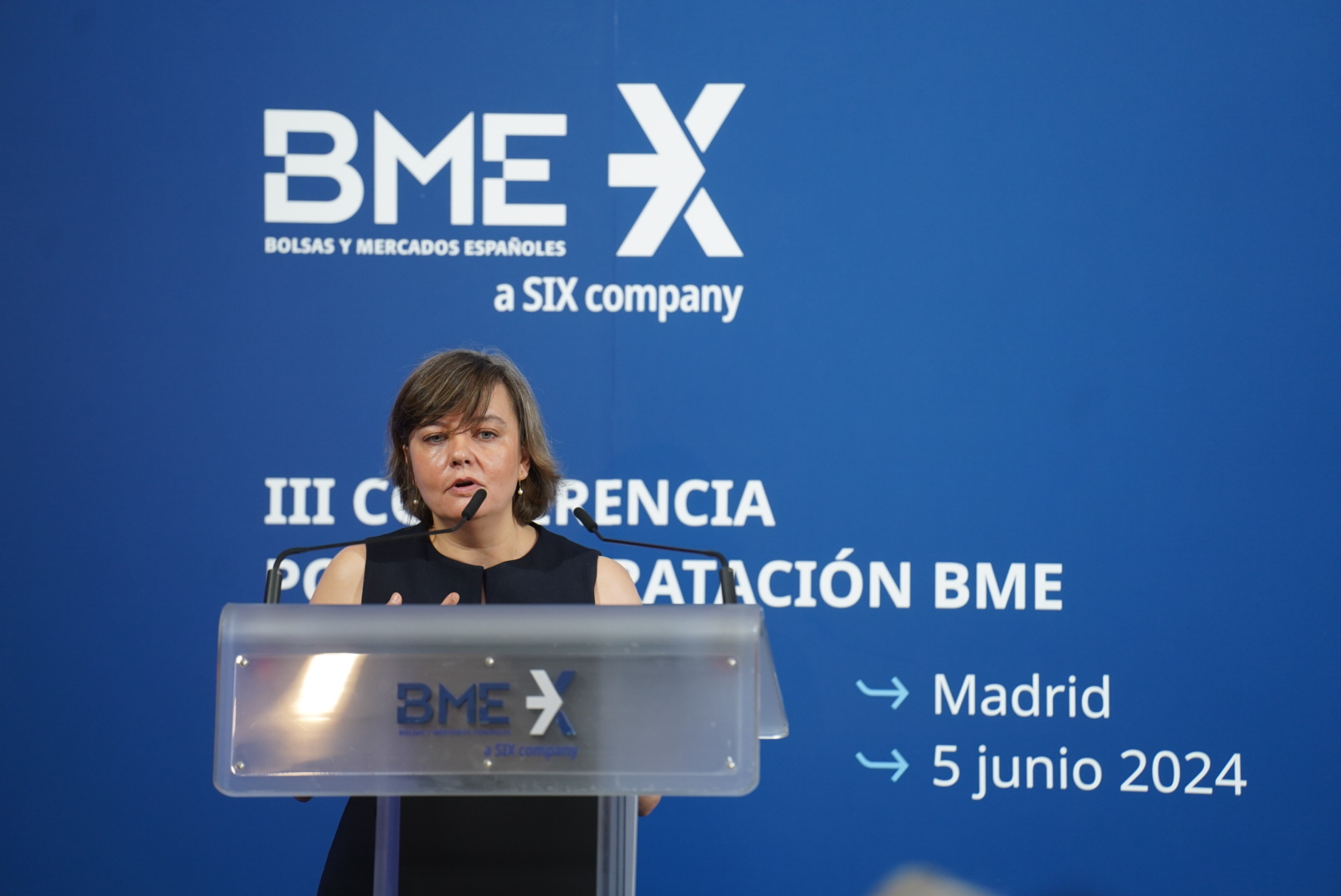
Amalia Cordero, Deputy Director General for Financial Legislation at the Treasury, shared her first-hand experience leading the negotiations of the EMIR 3.0 legislative dossier during the Spanish presidency of the European Union, and the difficulties in closing the agreement in the European Council regarding the requirements for activity in a European clearing house. Amalia also summarized the conclusions of the agreement and the estimated deadlines for publication and entry into force of the Regulation.
Panels and closing
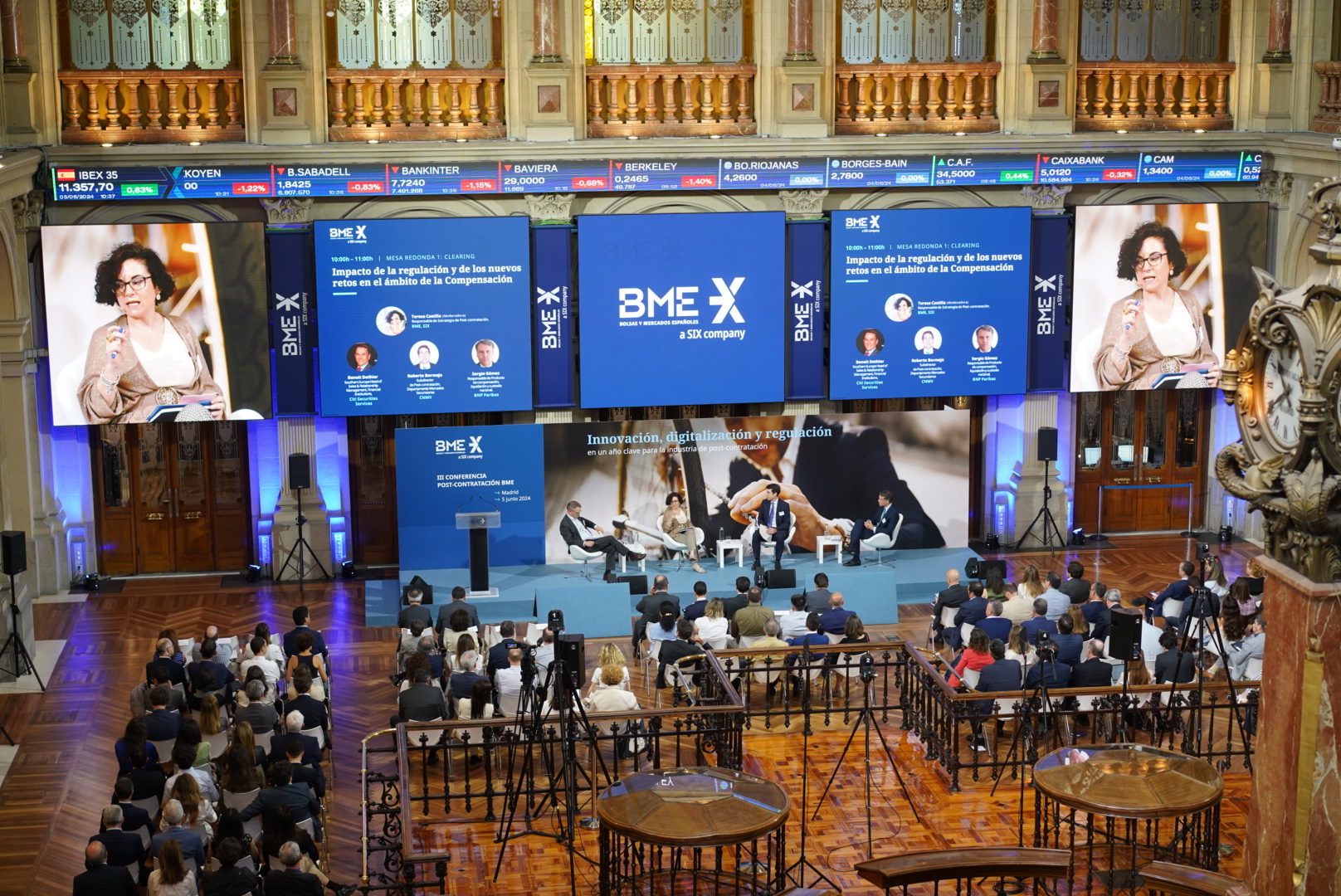
The first round table of the day was dedicated to clearing and was moderated by Teresa Castilla, Head of Post-Trading Strategy, BME, SIX, with panelists Benoit Dethier, Southern Europe head of Sales & Relationship Management, Financial Institutions, Citi Securities Services; Roberto Bermejo, Deputy Head of Post-Trading, Secondary Markets Department, CNMV, and Sergio Gómez, Head of Product Clearing, Settlement and National Custody, BNP Paribas.
The panel focused on the effects of competition and regulation on the clearing business, with particular focus on the cash segments where there is fierce competition between clearing houses operating under the interoperability model, and those operating alongside traditional markets in vertical structures. They reviewed developments in the industry, the way in which post-trade is increasingly influencing the execution structure, as well as the main priorities of supervisors in terms of competition and respect for the investor.
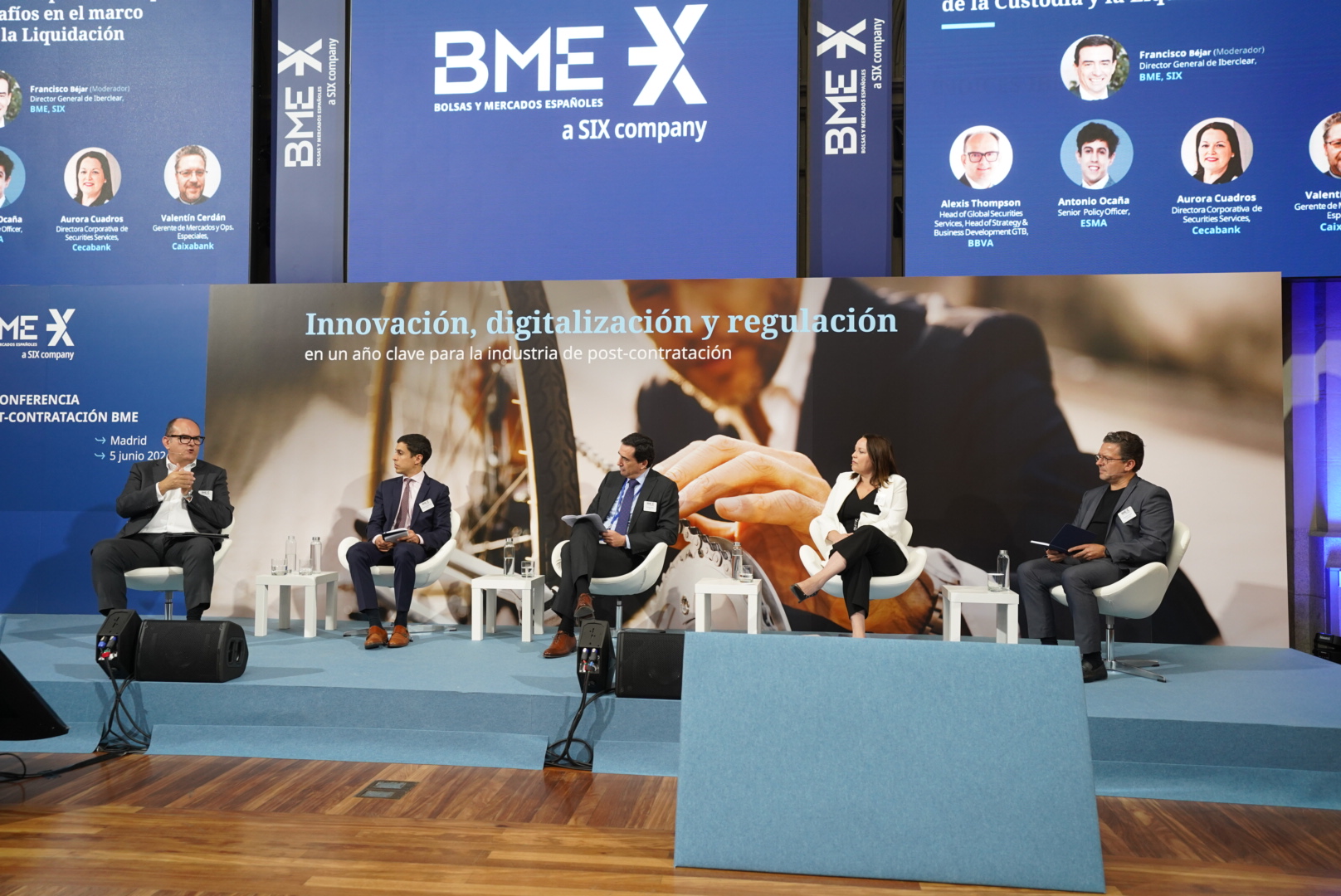
The second round table, dedicated to custody, was moderated by Francisco Béjar, General Manager of Iberclear, with the participation of Alexis Thompson, Head of Global Securities Services, Head of Strategy & Business Development GTB at BBVA; Antonio Ocaña Álvarez, Senior Policy Officer at ESMA; Aurora Cuadros, Corporate Director of Securities Services at Cecabank and Valentín Cerdán, Manager of Markets and Special Operations at CaixaBank.
Thompson, from BBVA, emphasized the usefulness of Artificial Intelligence to automate processes and add value. Cuadros, from Cecabank, highlighted the role of DLT technology and spoke about the experimentation process with the Bank of Spain in which his entity participates and in which the life cycle of a tokenized bond is simulated. For his part, Cerdán, from CaixaBank, focused on the management of corporate events, which is undergoing a complete transformation, and also on IPO procedures. He explained that the recent case of Puig, the largest IPO operation in the world this year, has shown that Spanish infrastructures work and are perfectly suited to operations of this magnitude.
As for Ocaña, he explained that ESMA is preparing the report on the costs and benefits of T+1 in Europe, while maintaining a constant dialogue with the European and international industry and authorities. The report is expected by the end of this year.
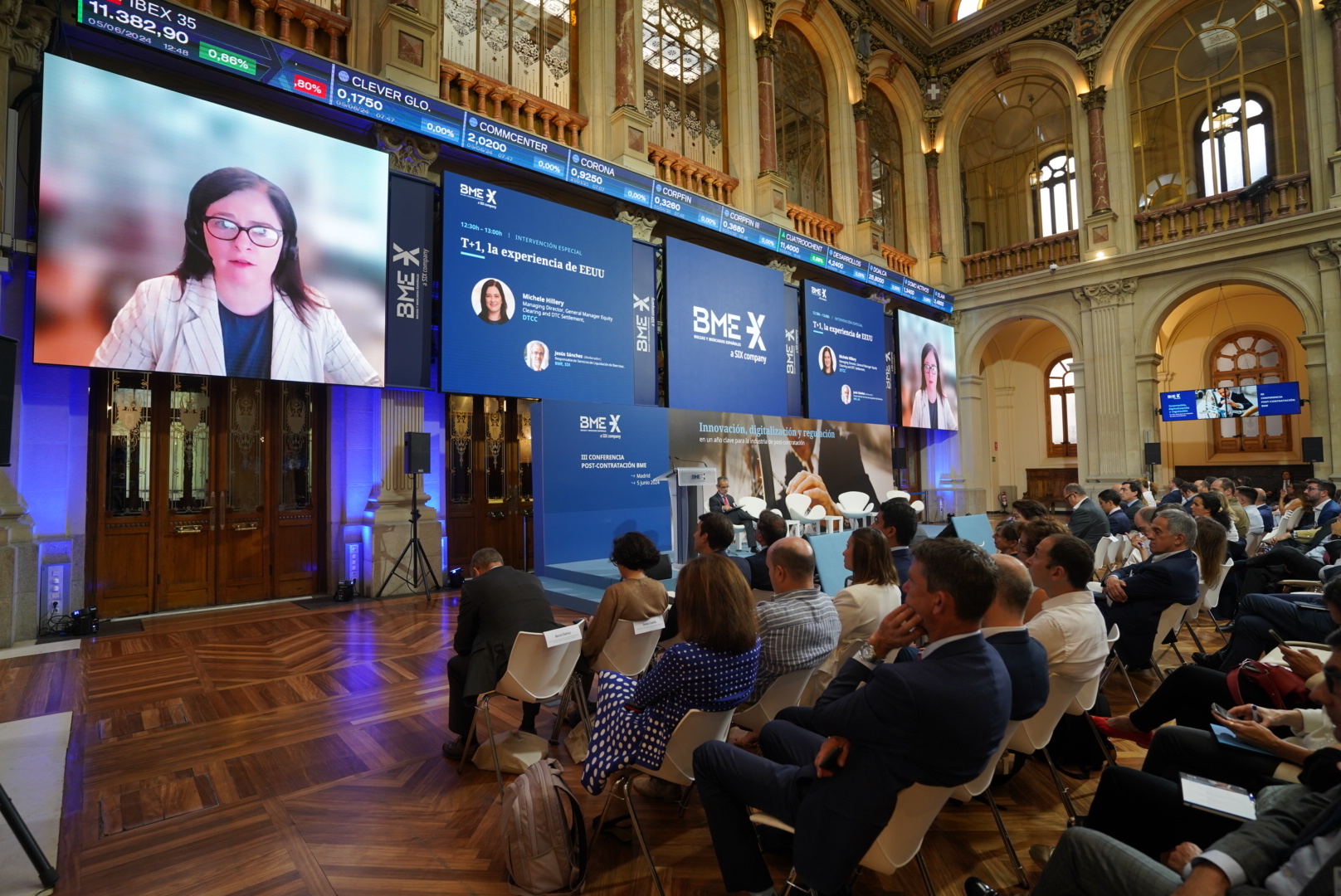
After these two panels came the special intervention of Michele Hillery, Managing Director, General Manager Equity Clearing and DTC Settlement of the DTCC, who, in response to questions from Jesús Sánchez, Head of Settlement Services at Iberclear, shared the balance of the first week of implementation of the T+1 settlement cycle in the United States.
In his speech, Hillery highlighted that the transition to the T+1 settlement cycle in the US comes after three years of studies and constant work to prepare the sector. He showed a very positive balance of the first week of application of the new system and said that, despite the short time since it has been in force, they have already seen many of its advantages, with a good level of efficiency and higher than expected one-day affirmation rates. As a key to the process that Europe will follow in a few years, he highlighted the collaboration with the industry, with a high level of coordination and dialogue with all the actors involved, sufficient, clear and transparent documentation and intense training, for example, through webinars.
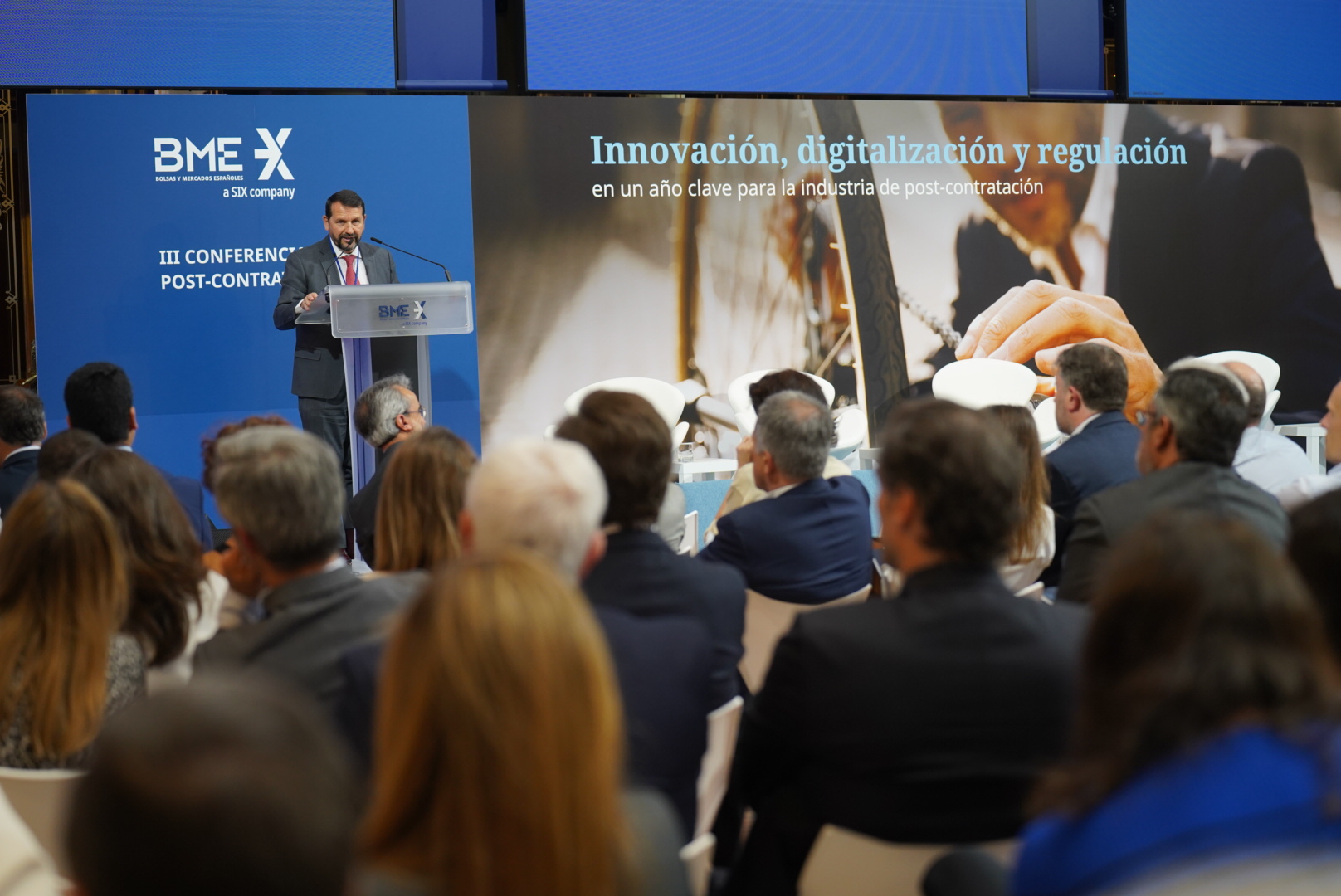
Finally, Jesús Benito, CEO of Iberclear, closed the event. In his speech he summarized the highlights of the previous panels. He also stressed the importance of digitalization, for example, with the application of Artificial Intelligence to predict failures. On the other hand, he stated that it is important to defend Europe and harmonization, but without ceasing to defend the interests of the national market. That is why BME (SIX) participates in working groups and consultations in Europe, while seeking to be internationally competitive.
You can find photos of the event here.
You can find Javier Hernani's full speech in this link.
For more information, you can consult BME's clearing and settlement services on their websites.
